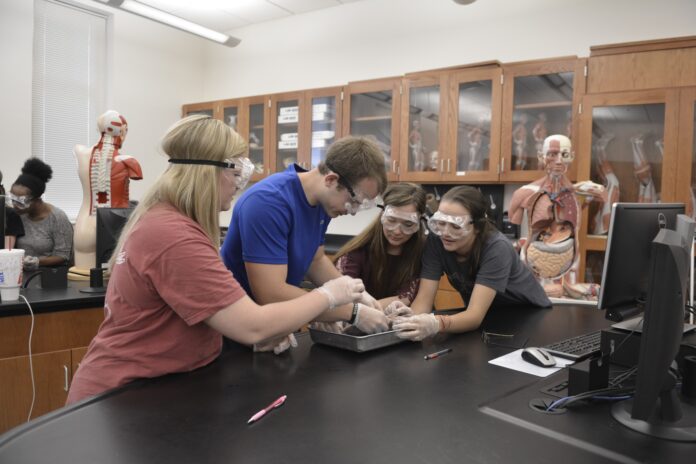In the five years since I became Chancellor of the Alabama Community College System, nothing has been a higher priority than making sure we provide world-class, affordable education and training so our students have the skills to succeed in a constantly evolving economy. During this time, we’ve successfully aligned our community colleges with the needs of Alabama business and industry. This has been a priority for one simple reason—workforce education and training that isn’t aligned with the state’s economic and job market needs is essentially worthless, a waste of both students’ time and taxpayers’ money.
For those unfamiliar with the organization of the Alabama Community College System (ACCS), we are a unified, comprehensive system of public two-year colleges governed by an independent Board of Trustees that the Legislature created in 2015. The creation of the ACCS Board of Trustees was a monumental step forward to positively change the operation and governance of the ACCS.
The Board helps maintain our focus on the workforce needs of the state’s employers. The men and women who serve on the Board of Trustees are among Alabama’s best and brightest business leaders, entrepreneurs, economic developers and educators. They know firsthand the day-in, day-out challenges that Alabama’s businesses and industries face, as well as the education and training employers are looking for. All of them are fully committed to preparing students and improving communities across this state through better education and workforce development opportunities.
Through the Board’s efforts, the financial condition of the ACCS is in an outstanding position. All community and technical colleges are now on a unified management system, they all are at or above the required two months’ operating financial reserves, and the ACCS recently received a positive increase in our bond rating (A1 stable) by Moody’s Investors Service due to the positive financial structures that have been put in place. Also, thanks to strong support from Governor Ivey and the Alabama Legislature, the ACCS has increased enrollment during the COVID-19 pandemic, which bucks the trend of decreased enrollment at community colleges nationwide. This is a testament to an understanding Alabamians and Alabama industries have about the value of the education and training our community colleges offer.
Today, Alabama’s community colleges serve 145,000 students from every walk of life who seek quality, affordable education and training in over 300 degree and certificate programs. Among them are roughly 19,000 high school students who are earning college credit and preparing for careers by participating in dual enrollment programs.
Direct and meaningful collaboration with Alabama business and industry is a hallmark of our work. Through business and industry partnerships, the ACCS has substantially expanded the number of education and workforce training programs we offer. For example, Alabama companies helped us develop apprenticeships that enable hundreds of our students to receive skills training while earning a paycheck at an Alabama business and providing quality work to their employers.
With the guidance and involvement of Alabama businesses and industries, we’ve also launched the ACCS Innovation Center, a workforce development initiative that supports the delivery of the Skills for Success curriculum to rapidly train workers for in-demand jobs. Skills for Success training offers short-term classes that students can start online and finish with an in-person lab in a regional ACCS location. Once students complete the training, they are job-ready and are awarded a credential and an opportunity to earn more certifications at their local community college.
By developing this rapid training with Alabama’s business and industry groups, we ensure the training and credentials are aligned with the jobs employers say they need to fill right away.
Employers know best what skills are needed in their industries, and that’s exactly why the ACCS is listening. Working with the Alabama Association of Automotive Manufacturers, the Alabama Trucking Association, Manufacture Alabama, the Business Council of Alabama, the Alabama Hospitality and Tourism Association, the National Federation of Independent Business, and many others, we offer the rapid, job-specific training Alabama industries tell us are most in-demand.
Our partnerships with business and industry will continue to grow because Alabama’s community colleges recognize we must continually adapt and upgrade our programs, just as our economy and the needs of our job market continually change.
Business and industry partnerships will help sustain Alabama’s economic vitality, prepare our students for the workforce we need, and change our state for the better.





















